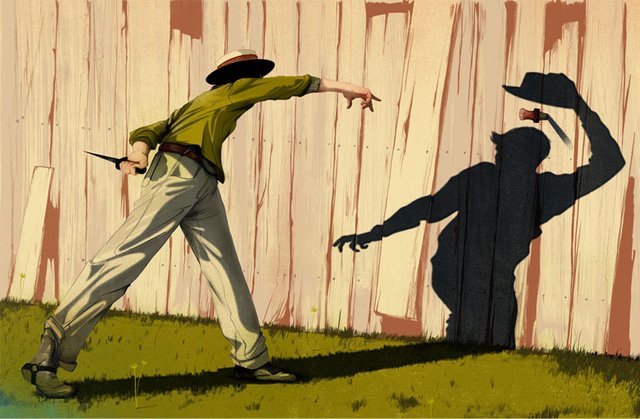Brian Koppelman, Lessons From a Formidable Screenwriter

“Do I have to move to L.A to make it as a screenwriter? Do I have to be tall to play in the NBA? No, but you better outwork everyone else.” ― Brian Koppelman.
Brian Koppelman needs no introduction. As one of the most prominent screenwriters of our time, there is obviously a myriad of things to learn from him. In fact, too many to write in one single post.
Sure, I could write up a list of the 27 tips that you must know about X or Y, but there’s no way I’m doing that.
I’m not gonna add up to the scrollable packageable lists you that we see everyday and which rarely impact anyone who comes across them.
Plus, there is no such thing as a “must-knows” you can break all the rules in the book and still come out on top. The word must is just an “authority” word they throw in there to make you click on their link.
So yeah, I’m not gonna do that.
So what I’m gonna do instead is this: I’m going to take the two most meaningful things I learned from Brian Koppelman, and then I’m going to expand on them a little bit and try to make it count.
Show Up Every Day

Write everyday is undoubtedly one of the most frequent pieces of advice that you’ll hear Koppelman say, and if you’ve been following his 6 seconds screenplay lessons on vine, then you’ll realize just how many times that subject comes up.
Well, they’re not actually lessons but just 6 seconds tips but the point stands nevertheless.
The important thing to notice here is that there is in fact a great reason why this subject is so frequent in all those videos.
For one, writing everyday is what keeps the momentum going.
You see, contrary to bumper-sticker beliefs life is not linear, neither success nor happiness are linear things that last forever and carry on with the same frequency.
Everyone of us had, has and will have all sorts of ups and downs, and there will be plenty of events in life that would probably destabilize your state of mind and productivity levels.
So when that happens, you need to try to maintain the good habits without letting the stones along the road distract you from where you want to be.
Also contrary to many self-help books (and bumper-sticker beliefs) you cannot perform at a 100% level every single day, that’s just unrealistic.
Unless of course you’re the human-cyborg progeny of the terminator and Sarah Connor.

Realistically, there are all kinds of outside factors that you can’t control and that would in one way or another affect your mood or state of mind, or even take time away from you. Time that you’ve planned to dedicate to some important tasks.
The key is not to fight those factors (or avoid to face them) but to come out on top no matter what.
How do you do that? By focusing on the elements that you can control.
In this case what you can control is the fact that you can take the time every day to write a few pages. Every single day.
You don’t feel you can create your best work today?
I doesn’t matter, tomorrow you can do a rewrite, or the day after.
The only thing that matters is to keep the habit going and to preserve the momentum you’ve worked so hard to achieve.
Why is that so important?
Suppose that you decide to break the writing habit because you’re not in the mood, or because you have to deal with some personal situation, or something of the sort.
Now, suppose that your personal situation does not get resolved as quickly as you’ve imagined. Well, in that case the more time you spend not writing, the more your brain gets accustomed to you not writing.
And we all know how much the human brain loves stability. So it would be wise to anticipate that your own brain would probably try to derail you or even act against your self-interest in order to remain in the same situation it has learned to be accustomed to.
"At every moment, when you are trying to improve yourself, there is a war taking place in your brain." ― Neil Strauss
So if you stop writing for a while, the next time you try to pick up the habit again, you’d have to deal with a new inner conflict.

Your brain now has become accustomed to this new version of you, a version where you don’t write everyday, and it’ll fight to keep that version, because it’s easier.
Now all of the sudden, your brain is sending you messages of discomfort every time you try to sit down and write. That’s what have to deal with that now, it’s hard to just slide in the good habits.
Oh, and you’ll also have to deal with laziness and procrastination as well.
So not only you find yourself in a place of stagnation, but you're taking a few steps back.
... To Be Continued
What is your favourite film? And actor? Good read thank you. Cheers mike
Excellent question. Favorite movie is The Prestige maybe.. Favorite actor Edward Norton for sure, he's so talented.
Thanks for the great question Mike!
Thank you for your reply. Edward norton is a very good actor I do like Pacino apart from the obvious godfather sent of a woman is my personal favourite. Cheers mike
Yeah you'e right Al Pacino is a hell of an actor!
Cheers mate
Interesting write man i like to see people talking about this kind of things
Thanks, I appreciate it!
Great article man. Thanks for sharing
Thank you!
Yep, some good points in here. If you skip days writing creatively, you should spend some time that day on analysis of plot structure in successful vs. unsuccessful shows and movies. Try to quantify exactly WHY one show just seems to suck by writing a page of detailed explanations. Then counterpoint with a similar treatise on why another show is great. It still seems like a lot of shows slip through the simple great/terrible filter of: Do I care about the characters? Is it engaging? Does the plot draw me along with it? Am I satisfied at the end? ... That kind of stuff.
This is a great post. It feels like it was written directly towards me. Maybe even from one of my inner voices telling me once again to not stop the habit development.
I've had this so many times. I sat down, opened Word, said here we go let's write and out came nothing.
After a few days of not writing your brain starts to come up with enough bullshit for you to not even care about getting back into the flow. You're not good enough, you're not a writer, your work sucks, no one's gonna read it, if they do they'll hate it... Bullshit! All of it.
Our brain needs to shut up. We have to shut it up. Zoom out and realize that this is not who we are. We are in control after all.
So, when I stopped judging my writing, stopped caring if anybody would read it or what they would think, when I said to myself I might probably not publish so why bother putting yourself down, when I wrote solely to write, to tell a story, to eventually one day in the future produce one meaningful piece of content, when I allowed myself this freedom, that was when stuff started to flow out of my finger tips.
Hammering away at the keyboard, formulating thoughts, putting them into words before my brain even conceived what was going on.
Steven Pressfield talks about the hard part being the start. The actually sitting down and committing to writing. To not get up, not eat, not sleep before the daily writing goal is achieved.
And whenever there is no idea what to write about, tell a story. Document what's going on in your life. As much as autobiographical writing can suck and be pointless it gets the juices flowing.
Document don't create. Takes the pressure away.
It happens to all of us. Whether it's self-doubt or discomfort, these are all bullshit excuses the brain sends to stops us.
Crazy species we are haha
By the way, you nailed it! Documenting is one of the most important lessons most writers and screenwriters I know keep insisting on.
Some call it journaling but the point stands. It's really invaluable.
Thanks for the awesome comment as usual, it's amazing.
Haha yeah, our brain does not wanna see us succeed, takes too much glucose :D
Yes, journaling, another great way to get something onto the page to feel a little achievement. Seems to be a great way to start your day.
Always! :)
I don't actually think it doesn't want us to succeed, it's just hard from the brain to adapt to a new "you", that's why streaks happen, when you're brain gets used to you being on fire. :)
Whether it's simulation theory as we discussed on Monday or stimulation of the RAS (reticular-activating system, where, for example, if you are thinking about buying a red car 🚗 then all of a sudden, ALL the red cars you now notice on the road...) or a combination of the two --> This post is huge A,
SO relevant for me writing that book we briefly chatted about a few days ago.
Awesome advice, great post 👍
Thanks brother 🙂
Looking forward to read it man!
Keep the up good work Craig, write everyday :)
Writing has always been hard for me! I've heard and read this suggestion, to write every day no matter what. I believe it is good but still have never managed to so it for more than a few days in a row.
Thanks for the unspiration to try again!
Nice Article. Appreciate the research that went into this. Voted Up, and Resteemed. Cheers.
Thank you Crowe! I appreciate it!
Lots of good things to learn from this guy :)
I know, he's pretty amazing.
That looks like fun! Let's read hehe! :d
Hope you like it :)
Very profound and educational article. And it's not only about writing but can relate to any other discipline.
Thanks for the great post!
Thanks for the kind words!
I like toast 🍞
Haha well I wish you a lot of toast!
Interesting to say the least. I think this really encompasses the subject of focus.
Yeah it kinda does :)
nice post!
Thank you!